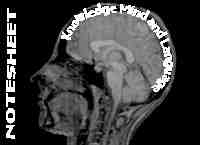Intentionality
Language items have intentionality
(At least some) mental states have intentionality also.
Franz Brentano (1838-1917):
" Every mental phenomenon is characterized by what the scholastics of the Middle Ages called the Intentional (and also mental) inexistence of an object, and what we would call, although in not entirely unambiguous terms, the reference to a content, a direction upon an object (by which we are not to understand a reality in this case) or immanent objectivity. Every mental phenomenon includes something as object within itself, although they do not all do so in the same way. In presentation, something is presented, in judgement something is affirmed or denied, in love loved, in hate hated, in desire desired and so on. This intentional inexistence is characteristic exclusively of mental phenomena." F.Brentano, Psychology from an Empirical Standpoint, Engl. Trans., New York, 1973, Humanities Press. Originally published 1874.
Eg the thought which I may report goes through my mind as I watch Harry Potter and the Chamber of Secrets: the thought that my brother lives in London.
Here again is something that seems to have 'aboutness'. It seems to be about my brother and his living in London.
There is on the one hand my thought. And on the other a fact. And the thought seems to be 'about' the fact. Thus: two aboutnesses, two intentionalities, the intentionalty of (a) sentences and (b) thoughts.
One account is this: that language items get their intentionality from the intentionality of mental items
The thesis that what confers intentionality is meaning
The thesis that what confers meaning is intentionality
The Gricean theory of meaning.
Physicalist approaches to intentionality
Causal-histoorical
The Churchlands discuss this in terms of the pit-organ of a rattlesnake.
Teleological
Nonphysicalist understanding of intentionality
Reminder: The representational theory of thinking
- a state of S's central nervous system
- that bears the semantic content that P;
- the state bears that content
- in much the same sense
- and in much the same way
- that a sentence of English or another natural language means that P.'
END
Revised 04:02:03